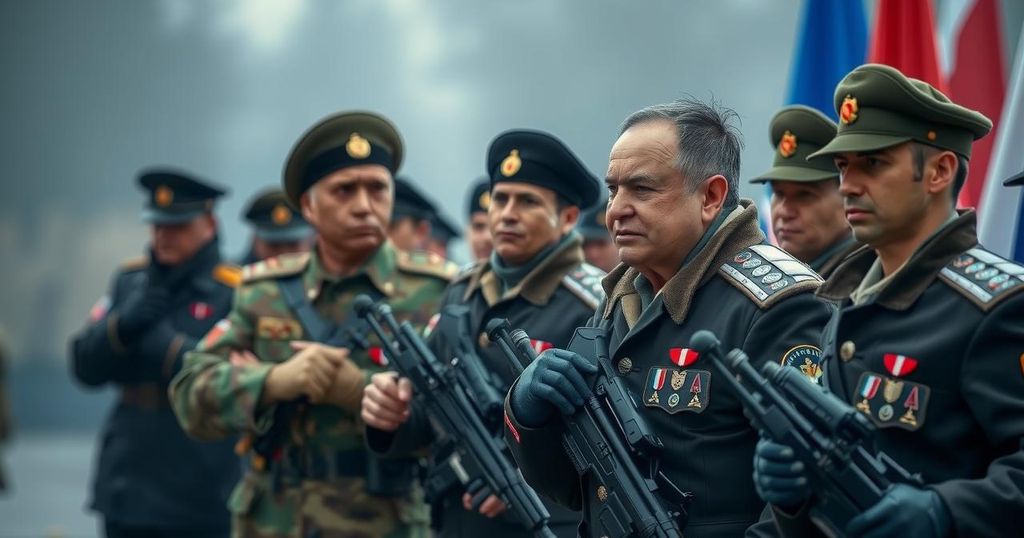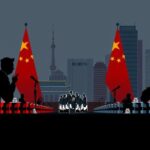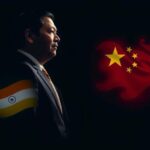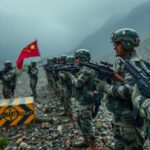Finnish President Warns of Escalation as North Korean Troops Head to Russia
Finnish President Alexander Stubb criticized North Korea’s recent deployment of 10,000 troops to Russia, asserting it constitutes an escalation in the Russia-Ukraine conflict that contradicts China’s statements on the importance of de-escalation. This criticism came after a diplomatic meeting with Chinese President Xi Jinping, during which they discussed trade and the necessity for peace efforts in Ukraine. Stubb emphasized the need for China to act as a mediator and expressed concerns about potential Russian nuclear developments.
In a press conference following a significant diplomatic meeting with Chinese President Xi Jinping, Finnish President Alexander Stubb articulated his concerns regarding North Korea’s recent deployment of troops to Russia, characterizing it as a troubling escalation amidst the ongoing Russia-Ukraine conflict. Stubb’s remarks, made in Beijing after several hours of dialogue with Xi, highlighted the contradiction between this military action and China’s stated desire for de-escalation in the region. The United States had earlier reported that North Korea had dispatched approximately 10,000 troops to aid Russia, particularly in the Kursk border area where Ukrainian forces have made territorial gains. Stubb emphasized that North Korea’s military activities represent “escalation, expansion and provocation,” directly opposing China’s earlier commitments to promote stability and peace on the battlefield. He reiterated that China should leverage its influence to support peace efforts in Ukraine, notably advocating for adherence to Ukraine’s peace plan. Furthermore, Stubb expressed apprehension regarding the potential deployment of nuclear weapons by President Vladimir Putin during the conflict, stressing the necessity for China to act as a constructive intermediary between Russia and the international community. In response, Xi expressed China’s readiness to collaborate with Finland and other stakeholders to foster a peaceful resolution to the ongoing crisis. As Finland continues to provide substantial military and humanitarian assistance to Ukraine, Stubb reiterated his commitment to maintaining a firm stance against Russian aggression and strengthening Finland’s security ties with the United States. The meeting also covered trade issues, particularly in light of the European Union’s plans to impose tariffs on Chinese electric vehicles, with Stubb cautioning against escalating trade tensions that could harm economic relations. Stubb’s visit underscored Finland’s strategic interests in the region, particularly in the context of its shared border with Russia and its recent NATO membership, which realigns its security posture within Europe.
The backdrop of this exchange lies in the increasing geopolitical tensions stemming from Russia’s invasion of Ukraine, which has prompted responses from various nations, including Finland. The recent involvement of North Korea, a nation traditionally isolated, raises concerns regarding the broader implications of such military alliances. Finnish President Alexander Stubb’s administration is particularly focused on addressing security threats from Russia, especially in light of Finland’s lengthy land border with Russia and its proactive role in supporting Ukraine. Concurrently, China has been navigating a complex diplomatic landscape, attempting to balance its relationships with both Russia and the West while advocating for peace in conflict zones.
President Stubb’s remarks serve as a critical reminder of the intricate dynamics at play in the Russia-Ukraine war exacerbated by North Korea’s troop deployment. His call for China to assume a proactive role in peace negotiations reflects broader concerns regarding global security and geopolitical stability. As Finland reinforces its commitment to Ukraine alongside its North Atlantic Treaty Organization (NATO) partners, the delicate web of international relationships continues to unfold, necessitating strategic dialogue between key global players to mitigate further escalation and promote peace.
Original Source: apnews.com








Post Comment